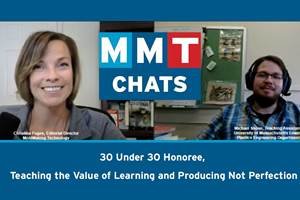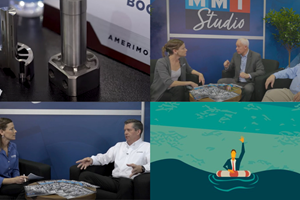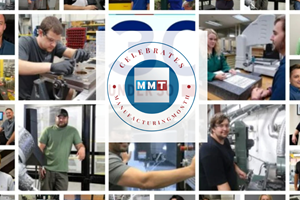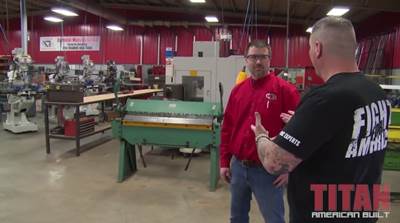Supplier-Based Training Programs Fuel Mold Industry Needs
Moldmaking industry supplier companies establish workforce development programs to increase the flow of new talent for themselves and for the industry.
Workforce development for manufacturing has found its way back into the nation’s consciousness, but the focus is primarily on mainstream companies, not moldmakers and certainly not their suppliers. And what about those suppliers? They are responsible for developing and bringing to market the technologies necessary for the entire mold lifecycle from software to repair. It’s critical that these suppliers maintain a skilled workforce too.
The companies featured here represent many supplier-side original equipment manufacturers and the workforce development programs they have developed, for themselves and for the industry at large, to help ensure manufacturing’s future.
Inspiring Tomorrow’s Mold Designers
Autodesk, Inc. (San Rafael, California) states on its website that “today’s challenges will be solved by tomorrow’s designers.” This statement explains why the design and engineering software company established the Autodesk Design Academy, a program to prepare the next generation of engineers and designers. “We have made a commitment company-wide to foster those skills and create a pipeline of new talent,” says Matt Pierce, senior manager of Americas, Autodesk Education Experiences. “It began three years ago, when we made our software completely free to schools,” he says. “At one time, schools were a significant source of revenue, but we know that’s a barrier, especially for smaller institutions where the cost of current software can be overwhelming.”
While giving teaching institutions free access to Autodesk products is significant, Pierce says it was only the beginning of what has become a huge, company-wide initiative. “We created our Design Academy program and website to provide downloadable courseware modules, videos to coach teachers, homework exercises and more—a virtual one-stop shop for all an instructor might need to engage and inspire students,” he says. In addition, Pierce leads a team of 11 experts who travel to academic institutions across North America to help professors, school administrators and students become proficient in design skills and techniques. The company also hires about 30 students each year to help train instructors. The position is similar to being a teacher’s assistant in college. There’s an emphasis on project-based learning, because collaboration and creativity are very much a part of how injection molded parts are designed, and these overarching skills are needed in today’s working environment. “We also act as a liaison between the education system and our commercial customers, who often ask us where to find new talent,” Pierce says.
Teaching Programming with Verification
CGTech (Irvine, California) is a supplier of Vericut, an NC verification, optimization and simulation software. CGTech has partnered with institutions of higher learning to promote manufacturing as a career for most of its near 30 years in business, according to Jim Huddy, national sales manager. “We have several hundred education customers in North America and nearly 1,000 worldwide,” he says.
By “education customers,” Huddy is referring to vocational high schools, trade schools and universities that participate in CGTech’s Educational Program, which provides schools with 30 seats of Vericut software and training for an annual fee of $1,000. The comprehensive package provides all the modules (CAD/CAM, tooling and model interfaces) and licenses that schools need to run a results-oriented training program. “Each school’s program varies by campus and by industry,” Huddy says. “However, they can verify and optimize NC code for virtually any machining process, including moldmaking.”
Tim McDonald is the tech support manager for North America. He manages the company’s team of 21 technicians, who are based throughout the United States and Canada. They arrange a custom Vericut Machine Configuration (VMC) to use with a school’s particular machines and then provide training on the use of Vericut for educators who, in turn, will train their students. “With skilled labor at a premium, not everyone is catching programming errors by hand. We want them to know how important it is to verify their programming before they hit the shop floor,” McDonald says.
In addition, CGTech technical support engineers participate as judges for the CNC milling and CNC lathe machining events at the National Leadership and Skills Conference (NLSC) SkillsUSA national competition. “The weeklong event draws more than 16,000 participants and is designed to help prepare students for joining the workforce,” Huddy says. Using Vericut, judges evaluate the accuracy of the NC programs created by student teams while ensuring their programs run without violating safety standards or damaging machines. Judges evaluate each category to measure the students’ level of understanding of CNC programming, including writing CNC programs, interpreting prints and measuring parts.
Training Metallurgical, Engineering and Technical Experts
Edro Engineering and Specialty Steels, Inc. (Walnut, California) is a supplier of custom mold bases, specialty steels and aluminum. Its leadership recognizes that in today’s moldmaking industry, many unique and innovative mold materials and process technologies are coming to market that require a specifically trained workforce. According to Mike Guscott, apprentice program manager at Edro, personnel development and training is a key part of the company’s ongoing strategy and focus. Edro therefore developed an 18-month apprenticeship program that provides a strong foundation for each individual. It is based on in-house education at any of the company’s many global locations. The program covers mold steels and aluminum, including the company’s RoyAlloy stainless product, as well as customer site visits so that students can learn problem-solving and the ability to make sales calls.
North American moldmakers need to be well informed on the best materials and processes available, helping them to produce high-performance plastic mold tooling and stay ahead in today’s globally competitive marketplace. To be able to assist, Edro apprentices are instructed on the various types of mold designs, molding operations and specific steels and heat treatments required for each application. Hands-on instruction in machining, heat-treatment and surface coatings are also covered in detail. For sales training, the apprenticeship covers territory planning, time management, market evaluation, budgeting and sales.
Additionally, Edro regularly cooperates with several universities, including Penn State University in State College, Pennsylvania, Lehigh University in Lehigh, Pennsylvania, and Concordia University in Chicago, Illinois, to select and hire motivated metallurgical, engineering and technical graduates. Penn State, for example, positively reviewed Edro’s apprentice proposal and recommended suitable student candidates to contact and meet during the university’s annual career fair. “We try to discuss each student’s ambitions and narrow the field to a few outstanding individuals who will become the next generation of professional sales engineers, product specialists and metallurgical technicians who will support the tooling industry in the years to come,” Guscott says. “We have also discussed the possibility of getting Penn State to participate with us on projects such as material testing and evaluation. Ultimately, our goal is to help the individual develop and become a well-rounded and successful professional in today’s plastic molding and moldmaking industries.”
Training for Company and Customers
HASCO America, Inc. (Fletcher, North Carolina) has a long tradition of apprenticeship programs that have helped keep its own workforce amply staffed since it began selling such items as mold bases, plates and components in Germany in 1924. About 45 years ago, Hasco also created a two-year machinist program and a three-year moldmaker apprentice program, which together have trained more than 400 young people to become moldmakers and CNC machine operators.
In 2011, Hasco launched its People Development Program to further train and develop current employees for success. A notable part of the program includes what the company calls SEED. Rene Eisenring, general manager, says, “In German, SEED translates to selbstständig (self-contained), eigenverantwortlich (responsible), ergebnisorintiert (results-oriented) and denker (thinker).” “We try to build independent, self-responsible, results-oriented thinkers who can and will solve problems and challenges on their own.”
Annual events such as Girls’ Day, where middle school girls visit Hasco and learn about manufacturing, help attract future employees. “We show them that fascination with technical matters is not restricted to men,” Eisenring says. “In the training workshop, the girls can demonstrate both their skills and dexterity.” Another annual event, Designer Day, gives students and customers hands-on and theoretical training on how best to use the mold plates and components in mold designing and building.
Additionally, Hasco supports programs at technical high schools and universities around the world. “We provide teachers with technical information, free technical books and catalogs, and we offer highly-reduced or free parts and components that they can use to teach classes,” Eisenring says. Hasco, for example, delivered six small, complete mold bases at no cost to the Sussex County Technical School in Sparta Township, New Jersey. The class used them to build six different molds. Students designed them in 3D and used CAM to machine the plates and parts. At the end of the semester, the students put the finished tools into an injection molding press and produced plastic parts.
“With Clemson University in Clemson, South Carolina, we provided initial training at our facility in Fletcher, North Carolina for some of their instructors who are working on developing new, lightweight plastic parts for the automotive industry,” Eisenring says. “We also provided mold plates and components to them at a very reduced cost to allow them to successfully build their first mold in 2016.”
Enabling Employment for Life through Mechatronics Training
CNC machine tool supplier Okuma America Corporation (Charlotte, North Carolina) is contacted regularly by companies in need of skilled CNC operators, especially those who can run five-axis machines. Brittany Russell, PHR and training program manager, says, “These jobs require skills that are so critical in today’s manufacturing industry. We call it employment for life. If you have the skills, you will be a highly-valued member of any manufacturing company’s team, and Okuma is helping create pipelines for future talent.”
One way the company is actively involved in workforce development is through its long-standing partnership with Central Piedmont Community College (CPCC), which is also in Charlotte. The college and Okuma have been working together on curriculum and mechatronic aspects of manufacturing education since the 1980s, and CPCC is one of the top community colleges in the nation for machine tool technology. “We made sure they had access to mechatronics (mechanical and electrical control technologies) over the years by consigning CNC mills, lathes and other equipment needed for learning the latest machining technologies,” Russell says.
In June 2016, Okuma donated an MC-V4020 CNC vertical machining center and an ES-L8II CNC lathe to the engineering technology programs at CPCC. The donation, which includes software updates and tech support, took the partnership to next level and provides students with the machining skills and practical experiences that are necessary to pursue careers in today’s high-technology industries.
Okuma hosts events geared toward awareness of manufacturing and the importance of partnerships at its Partners in THINC facility. Okuma has also been very helpful in setting up customer site visits for students. College-credit-worthy co-ops and paid internships with Okuma are valued opportunities for CPCC students who are looking to hone their skills in a real-world shop environment. Chris Paynter, Dean of STEM programs at CPCC, says, “Basically, they use their work-based learning experiences as they work to finish their degrees.” Okuma currently offers this program for field service technicians, but co-op students also learn by performing finish work on machines prior to delivery to customers to learn how CNC machines are built and how they operate.
Using Cutting Tools to Shape the Talent Pipeline
OSG USA, Inc. (Irving, Texas), a supplier of drills, taps, end mills and indexable cutting tools, has been actively building relationships with high schools, community colleges, trade schools and universities in the Chicago area for 49 years. Paul Wilhelm, human resources generalist, says this strategy has helped establish and maintain a “talent pipeline” for the company’s manufacturing and engineering positions. These relationships are also meant to create awareness of careers in manufacturing, he says, adding, “We work with local schools and organizations to plan and execute plant tours for faculty and their students to learn about our business structure and manufacturing operations in Bensenville, Illinois.”
OSG also organizes the tours so that they correspond with the audience’s field of study, such as CNC operation/setup, engineering and so on. The tours give examples of career paths that an entry-level hire can expect to follow. In addition to hosting students and instructors, OSG also donates tools like drills, endmills and taps to local colleges. The company is currently working on developing a scholarship award that would be given annually to students enrolled in machining, manufacturing or engineering-related studies at vocational schools, technical schools or traditional schools of higher education.
OSG regularly participates in local career-related events like the College of DuPage Manufacturing Expo, which usually occurs each fall. During the event, groups of high school students visit exhibitors’ booths to learn about each company’s products and business. “It’s a unique way to raise awareness of manufacturing in younger people who may be undecided about whether they will go to college or what they want to
do for a career,” Wilhelm says. “We hired a part-time employee from Fenton High School in Bensenville who we met through this event.”
For current employees, OSG established an internal training and education program called OSG Group University, which involves classroom training conducted for employees by employees and on company time. “We offer between 50 and 60 classes per year, with topics ranging from business communication skills to presentation skills to basic and advanced engineering concepts and our tool manufacturing process,” Wilhelm says. “Department managers often are our subject-matter experts who are the instructors, while our company’s executive team, together with all management personnel, advises on the focus for OSG Group University curriculum.”
Training Laser-Sharp Apprentices
Trumpf Inc.(Farmington, Connecticut), a supplier of machine tools and laser systems, was one of nine U.S. companies recognized by the National Fund for Workforce Development as a 2017 Young Adult Employer Champion. Dr. Christine Benz, training manager, was instrumental in launching the company’s Machine Tool Technician apprenticeship three years ago to help speed up the recruitment of new talent for difficult-to-fill field service engineer positions.
According to Benz, Trumpf’s field service engineers must possess good mechanical skills, a background in electronics and pneumatics and troubleshooting skills. Good interpersonal skills are also essential because these engineers are the face of Trumpf. Benz cites valuable relationships with career counselors from local high schools, technical high schools and community colleges as the number one resource for applicants to the apprenticeship program.
The company’s two-year program is divided into four semesters, each focusing on a different part of what recruits will ultimately do in their new careers. During the first semester, apprentices are immersed in all things Trumpf, and they spend time in every department. For example, they may spend up to five months in engineering and production, for example, where they shadow jobs, read work instructions and study. They gradually take on more responsibility until they can complete a set of tasks in the machine assembly line totally unsupervised. The second semester focuses on learning the ins and outs of the press brake, punch press and laser machines that Trumpf manufactures. The company currently has 13 machines dedicated to training, including a 2D laser machine with integrated automation and a TruMark Series marking laser machine. The third semester is dedicated solely to laser technologies and how the 2D laser cutters work. In the fourth semester, trainees begin traveling with experienced service engineers in the field.
Uniquely, apprentices spend a great deal of time in the training center, alongside Trumpf customers, learning how to program and run the machines. Other classes teach them how to disassemble a machine and put it back together, to repair and to troubleshoot. Throughout the apprenticeship, trainees attend college with the goal of completing a certificate program or earning at least a two-year degree. Trumpf will soon introduce a new Advanced Manufacturing Technician program for laser and machine. “The message I keep sending to our fellow manufacturers is get involved, because this skills gap is not going away anytime soon,” Benz says.
Related Content
ICYMI, MMT Chats: 30 Under 30 Honoree, Plastics Engineering TA Teaches Value of Learning and Producing Not Perfection
MoldMaking Technology Editorial Director Christina Fuges brings on UMass Lowell Plastics Engineering Teaching Assistant Michael Shone as a guest for this MMT Chat to discuss moldmaking through the lens of academia. This episode is brought to you by ISCAR with New Ideas for Machining Intelligently.
Read MoreFrom Injection Mold Venting to Runnerless Micro Molds: MMT's Top-Viewed June Content
The MoldMaking Technology team has compiled a list of the top-viewed June content based on analytics. This month, we covered an array of topics including injection mold venting, business strategies and runnerless micro molds. Take a look at what you might have missed!
Read More30 Under 30: The New Face of Moldmaking
Young professionals are vital to the moldmaking industry, and it is important to acknowledge those making strides in shaping the industry's future. MoldMaking Technology recognizes the industry's young talent through its inaugural 30-Under-30 Honors Program.
Read MoreMaking Quick and Easy Kaizen Work for Your Shop
Within each person is unlimited creative potential to improve shop operations.
Read MoreRead Next
Getting Real about Manufacturing Ed to Fill the Skills Gap
Learn the key elements of a local teaching strategy from Cardinal Manufacturing and Northwoods Manufacturing on Thursday, September 03, 2015 2:00 PM - 3:00 PM EST.
Read MoreHow to Use Strategic Planning Tools, Data to Manage the Human Side of Business
Q&A with Marion Wells, MMT EAB member and founder of Human Asset Management.
Read MoreReasons to Use Fiber Lasers for Mold Cleaning
Fiber lasers offer a simplicity, speed, control and portability, minimizing mold cleaning risks.
Read More

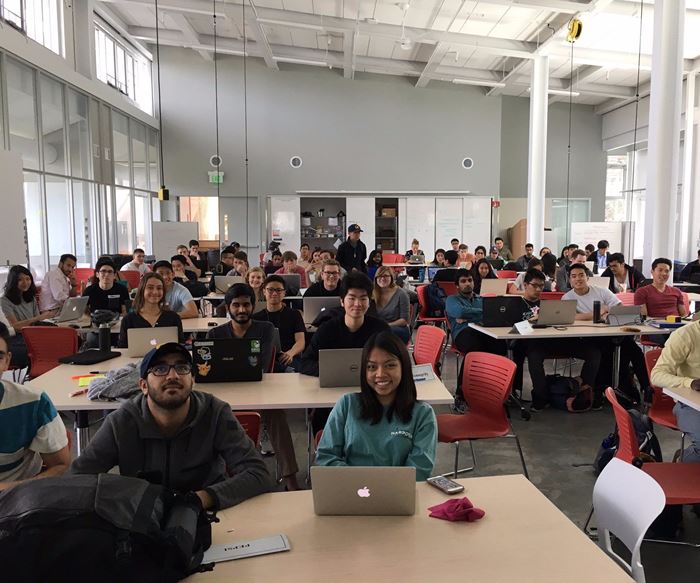
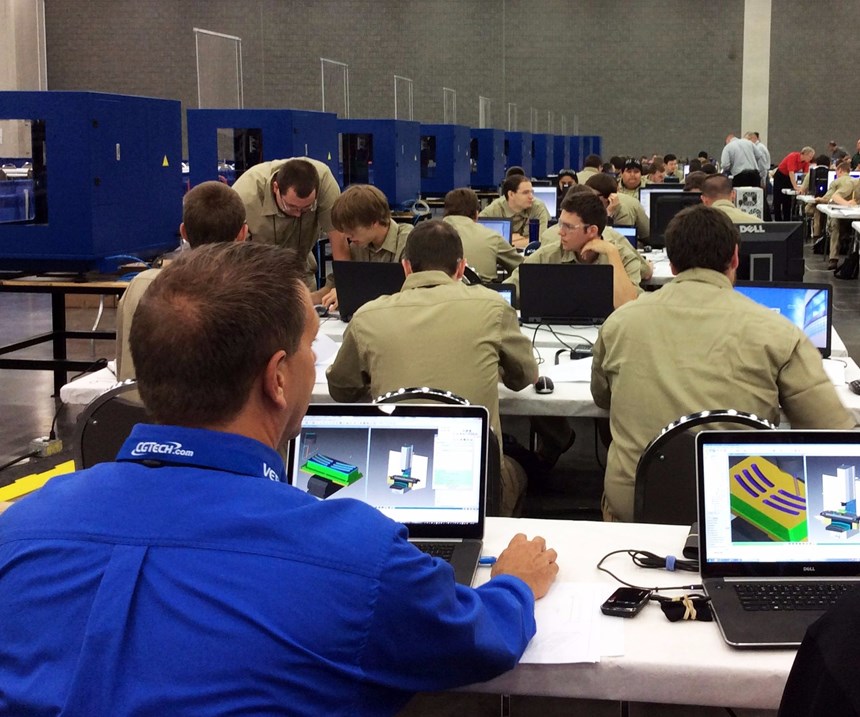
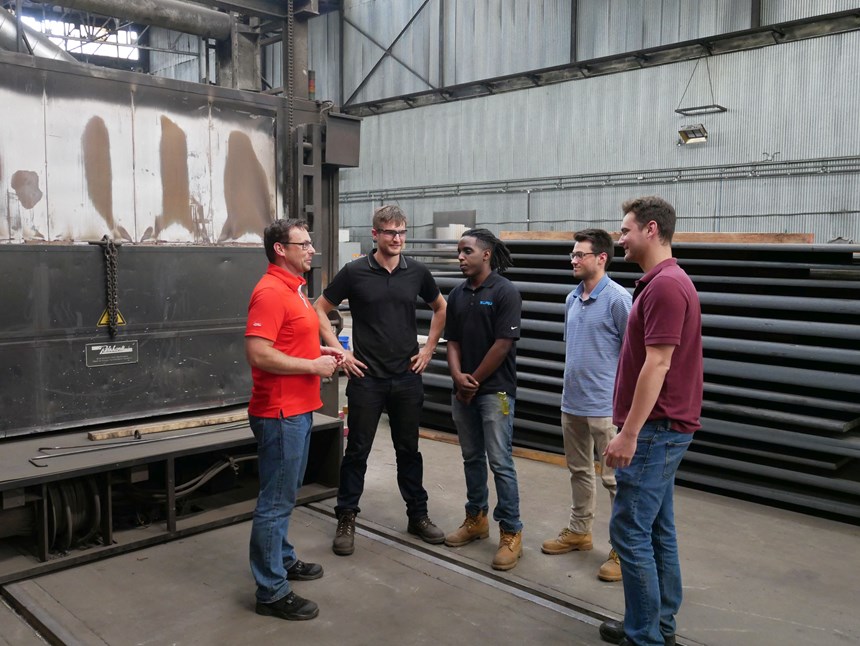
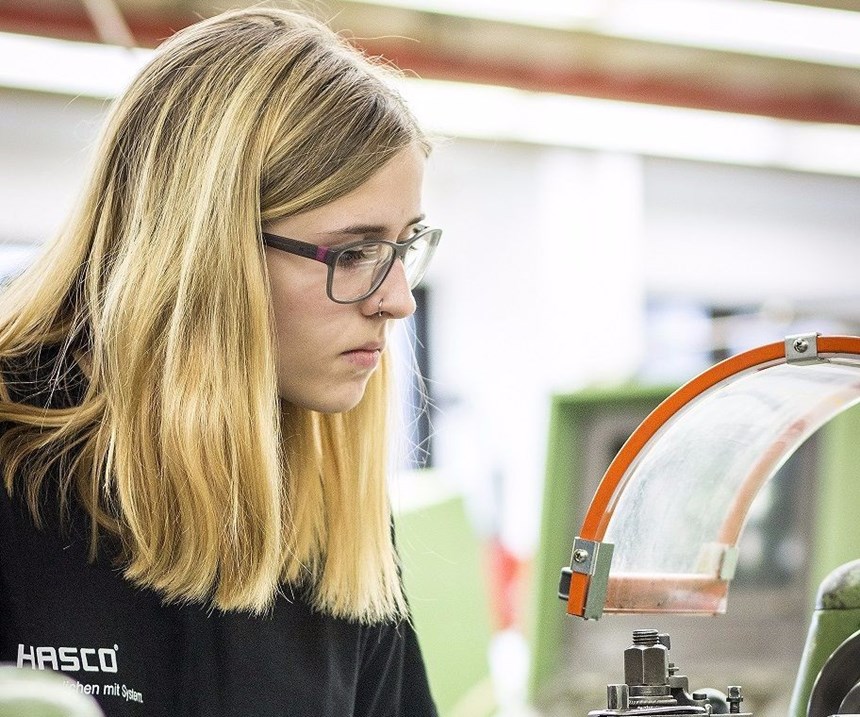
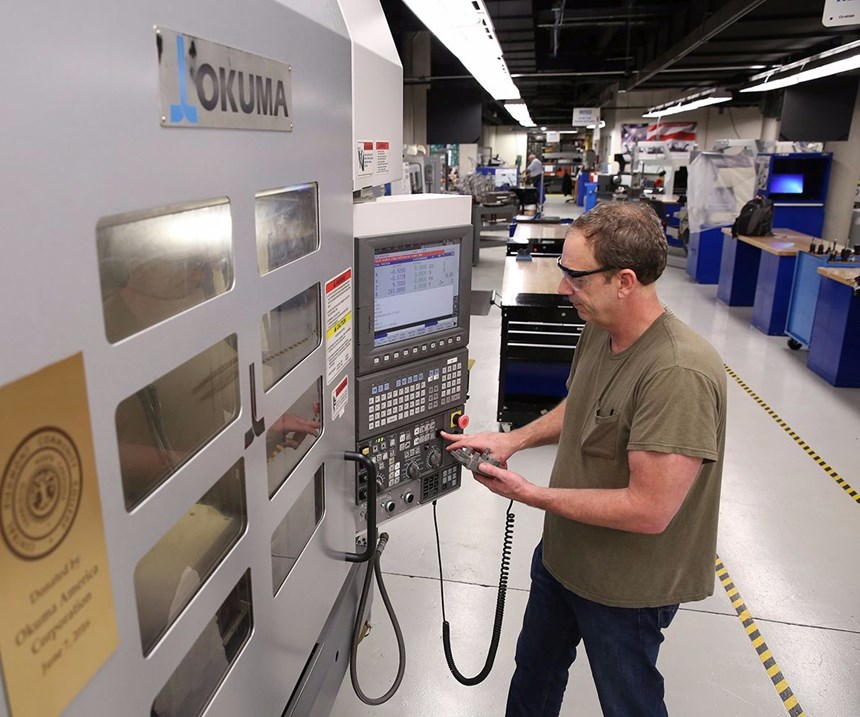
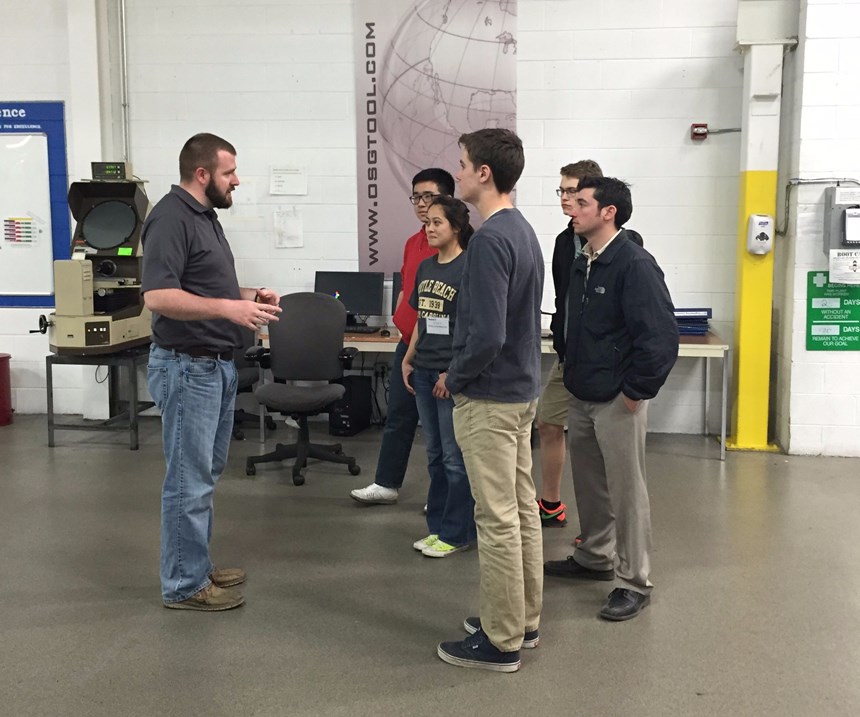
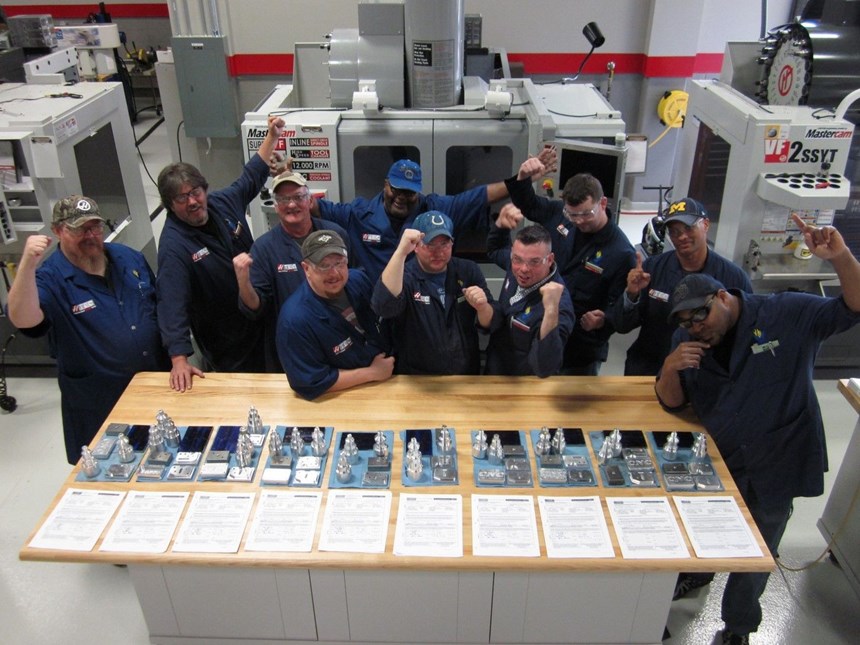







.png;maxWidth=300;quality=90)





_300x250 4.png;maxWidth=300;quality=90)


.jpg;maxWidth=300;quality=90)





